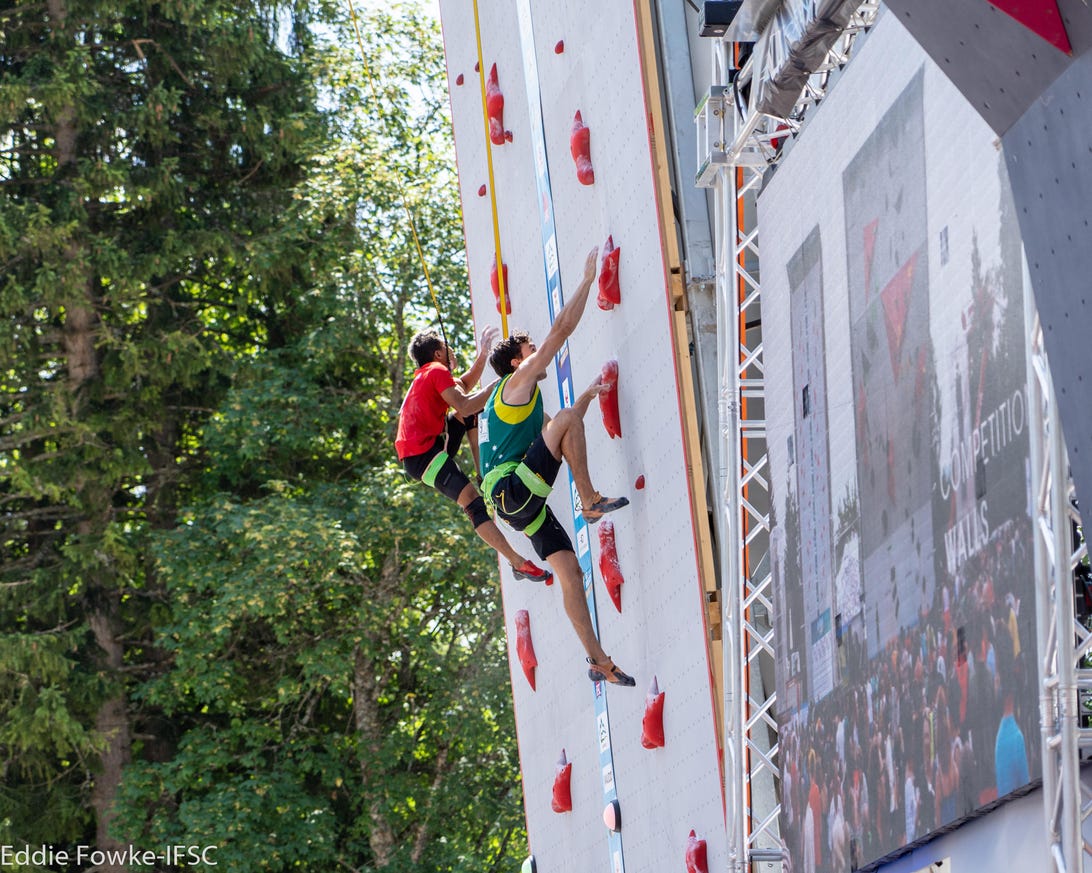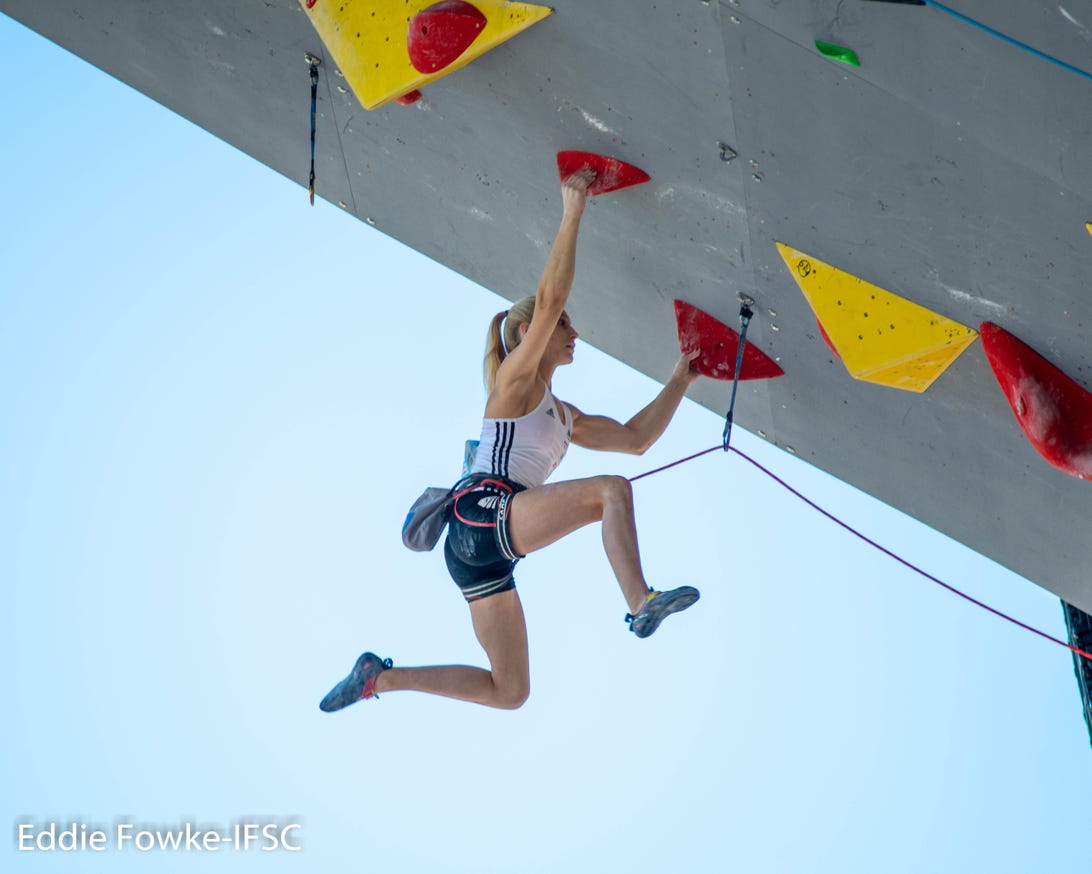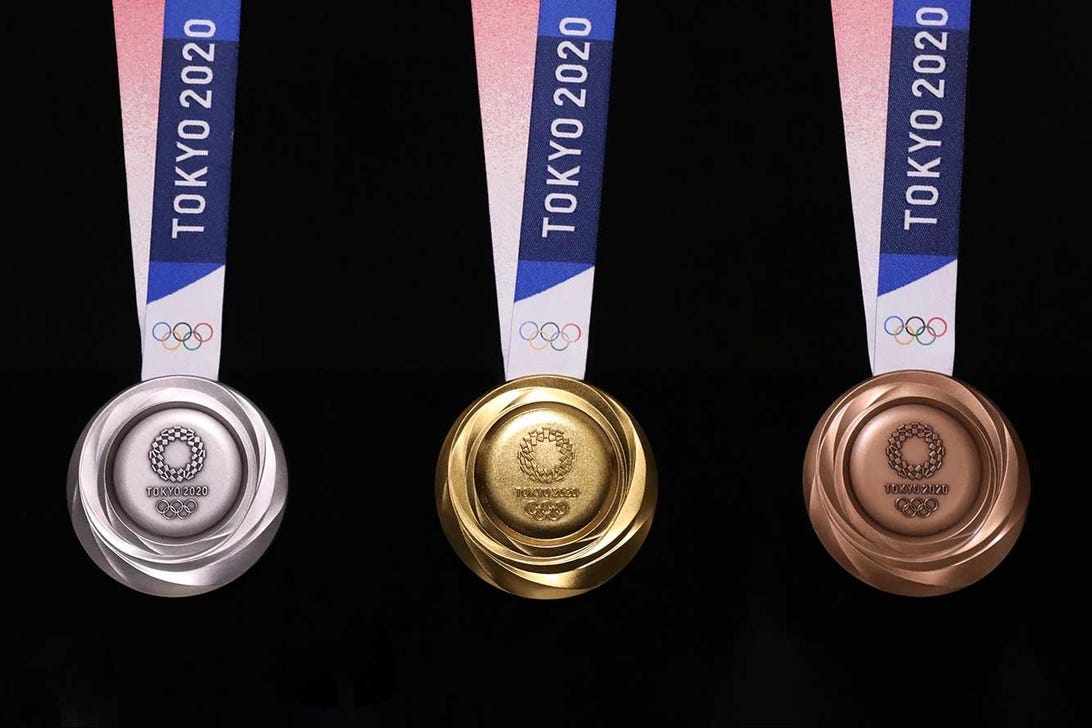
Adam Ondra is probably the best climber in the world at the moment.
Sebastian Widmann / Getty Images
Sport climbing is coming to Tokyo Olympics!
Rock climbing has been around since – well, since the first time someone tried to climb something rocky. Corn modern recreational climbing began in the 19th century, sport climbing only emerging 70s and 80s.

Traditional climbing takes place outdoors without a predetermined route.
Getty Images
At the Olympic Games, climbing will take place on furnished or covered routes. They practice in the pursuit of physical perfection and strategy as opposed to vertical height.
Climbing has become a catch-all term for many different sports, ranging from free solo To block. With that in mind, here’s everything you need to know about sport climbing at the 2020 Olympics.
When to watch rock climbing at the Tokyo Olympics
the Olympic Masters Calendar has already been released, with qualifying events for sport climbing on August 3-4.
Here is the breakdown for men …
- Qualifying for the men’s sprint climbing will take place on August 3 at 4 a.m. EDT (1 a.m. PDT).
- Qualifying for the men’s block will take place on August 3 at 5 a.m. EDT (2 a.m. PDT).
- The men’s lead climbing qualifiers will take place on August 3 at 8 a.m. EDT (5 a.m. PDT).
And for women …
- Qualifying for the women’s speed climbing will take place on August 4 at 4 a.m. EDT (1 a.m. PDT).
- Qualifying for the women’s block will take place on August 4 at 5 a.m. EDT (2 a.m. PDT).
- Qualifications for the women’s lead climb will take place on August 4 at 8 a.m. EDT (5 a.m. PDT).
The finals will take place on August 5 and 6. In the United States, NBC will broadcast events, with the BBC securing the rights in England and Channel Seven, 7Mate and 7Two in Australia. All events will take place at Aomi Urban Sports Park in Tokyo.
How rock climbing works at the Olympics
Sport climbing will be divided into three distinct disciplines: speed climbing, lead climbing and bouldering. Not all countries will be represented; only 20 athletes per gender (40 climbers in total) will be allowed to participate in the Games, and only 2 athletes per gender and per country will participate in a given event.
For info, the International Olympic Committee currently recognizes only two genders – female and male. There is currently conditions for athletes who identify as transgender, both female and male, to compete. But there are no guidelines or decisions for athletes who do not identify as women or men, including those who are not binary, agender and genderqueer.
The combined nature of rock climbing at the Olympics has been somewhat controversial. Speed climbing requires completely different skills than bouldering and lead climbing. At the next Olympics, speed climbing will be split into a separate event, leaving bouldering and climbing in the lead as a combined event.
Speed climbing

Two climbers, one wall.
IFSC
Speed climbing is relatively straightforward: there are two climbers with safety ropes and a 15-meter wall placed at a 95-degree angle. Climbers compete to reach the top, with the fastest winning. The speed route is exactly the same at all times: the same stands in the same position and at exactly the same angle. The addition of speed climbing has been somewhat controversial in the climbing community, as it requires a completely different skill set than other climbing disciplines.
Block

Athletes use physical and mental precision to climb to the top of a bouldering route.
IFSC
The boulder takes place on a shorter wall, where climbers take turns attempting to climb as many routes on a four-meter-high wall in 4 minutes. Each route (also known as a bouldering problem) is laid out with hand and foot grips of a specific color, and their difficulty varies depending on the size of the grips and their spacing. A climber completes a problem by grasping the upper grip with both hands.
Bouldering has always been about power and finger strength, but recently competitive lane markers have created issues that require delicate coordination and explosive gymnastic movements. This one will be fun to watch.
Lead climbing

In lead climbing, participants secure themselves with a rope when climbing higher.
IFSC
The lead climbing is arguably the most recognizable of the three events. The climber has six minutes to climb this high on a wall over 15 meters high. They use safety ropes that attach to quickdraws on the way up, allowing the rope to run freely while remaining anchored to the wall. If two athletes reach the same point on the wall, the person who got there first is the winner.
Whether in bouldering or lead climbing, climbers are not allowed to practice climbing on the routes before facing each other or watching each other climb the wall, and they only have a few minutes to study the routes and decide to their strategy before the start of the stopwatch.
Medal system

Olympic and Paralympic medals are made from recycled electronics. By the way, the Olympics won’t change the year of the medals.
Tokyo Olympics
If you thought the qualifying system was a bit complicated, take a deep breath. There is only a series of medals awarded by gender, the three events will therefore determine which country will win gold, silver and bronze.
The discipline of speed climbing will take place in the form of brackets, with athletes competing head-to-head, while the boulder will be in the form of leaderboards. The lead climb will have a point system in which each hold on the wall counts as one point and the athlete who climbs the highest will get the highest score.
Once all athletes are ranked by event ranking, their ranking numbers will be multiplied and climbers with the lowest scores will win medals. Due to the scoring format, each climber will participate in each event. For example, if an athlete gets second in speed climbing, third in bouldering, and first in lead climbing, their overall score would be six (2 times 3 times 1 equals 6).
[ad_2]
Source Link






